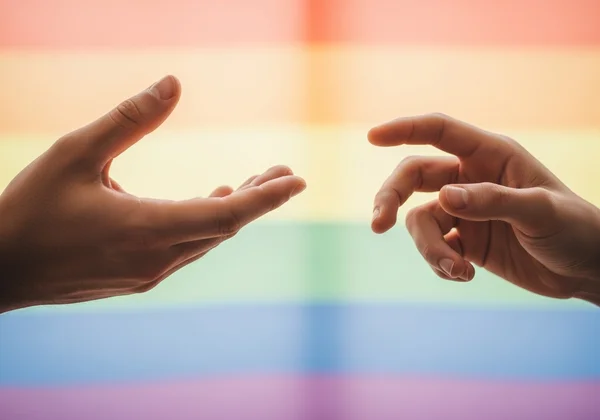Am I Gay? Navigating Sexuality Anxiety with Our Free Gay Quiz
Feeling overwhelmed or anxious while exploring your sexual identity? Is it normal to question my sexuality and feel a storm of emotions? You're not alone. This journey of self-discovery is deeply personal and can sometimes feel isolating, but understanding and managing the sexuality anxiety that comes with it is a powerful step toward clarity and peace. This guide offers compassionate support and practical strategies to help you navigate these feelings, build resilience, and embrace your path with confidence. We understand the confusion, and we're here to help you find your footing.
This process is about you, for you. It's a journey of understanding your deepest self, and there's no right or wrong timeline. If you're looking for a gentle and private space to begin organizing your thoughts, a self-reflection tool can be a gentle first step.

Understanding Questioning Sexuality Mental Health
The process of questioning your identity is more than just a series of thoughts; it's a profound emotional experience. When you start asking questions like "Am I gay?", you're not just exploring attraction—you're re-examining your sense of self, your future, and your place in the world. This can be a significant source of stress and anxiety, but understanding why can help you manage it effectively.
Why Sexual Orientation Confusion Creates Emotional Well-being Challenges
At its core, sexual orientation confusion can feel like standing on shifting ground. The uncertainty it brings can trigger anxiety for several reasons. Societal expectations, whether from family, friends, or culture, can create immense pressure to fit into a specific box. You might fear judgment, rejection, or misunderstanding, leading to a state of high alert.
Internally, you might be grappling with conflicting feelings or internalized beliefs that you weren't even aware you had. This inner conflict between who you think you should be and who you might be is a major driver of anxiety. It's a journey that challenges your core beliefs, and that process requires immense mental and emotional energy.
The Link Between Identity Exploration and Daily Stress
This deep identity exploration isn't something you can just switch off at the end of the day. It can seep into every aspect of your life, affecting your mental health in tangible ways. You might find it harder to concentrate on school or work, experience changes in your sleep patterns, or feel a persistent sense of unease.
Many people also describe feeling isolated, as if they are the only ones going through this. This can lead to withdrawing from social circles for fear of being "found out" before they've even found themselves. Remember, this stress is a normal response to a major life exploration. Acknowledging it is the first step toward managing it. Taking a moment to start exploring safely can provide a private space to process these thoughts without external pressure.
Practical Strategies for Managing Am I Gay Anxiety
While the feelings can be intense, you are not powerless. There are practical, effective tools you can use to calm your mind, build resilience, and navigate the anxiety that often accompanies the "Am I gay?" question. These strategies focus on grounding yourself in the present and treating yourself with the kindness you deserve.
Mindfulness and Coping Strategies for Overwhelm
When your thoughts are racing, mindfulness can be a powerful anchor. It's the practice of bringing your attention to the present moment without judgment. You don't need a quiet room or a yoga mat; you can do these simple exercises anywhere.
-
Deep Breathing: Inhale slowly through your nose for four counts, hold for four counts, and exhale slowly through your mouth for six counts. This simple act can calm your nervous system instantly.
-
The 5-4-3-2-1 Technique: When you feel overwhelmed, name five things you can see, four things you can touch, three things you can hear, two things you can smell, and one thing you can taste. This pulls your focus out of your anxious thoughts and into your physical environment.
-
Body Scan: Close your eyes and mentally scan your body from your toes to your head, simply noticing any sensations without trying to change them. This builds a stronger connection between your mind and body.

Cultivating Self-Compassion and Acceptance
One of the most powerful tools you have is self-compassion. This journey is not a test you can pass or fail. It’s an exploration. Treat yourself with the same kindness you would offer a friend who is struggling.
Challenge negative self-talk. If you catch yourself thinking, "I'm so confused, what's wrong with me?", gently reframe it: "I'm exploring a deep part of myself, and it's okay to be uncertain." Embrace uncertainty as a natural part of the process. You don't need to have all the answers right now. Giving yourself permission to simply be in the process is a radical act of self-care.
Building a Supportive Community
You don't have to walk this path alone. Connection is a fundamental human need and a powerful antidote to anxiety and isolation. A supportive community can make all the difference.
This could mean confiding in a trusted friend or family member who you know will be accepting. If that doesn't feel safe right now, there are countless online communities, forums, and groups for LGBTQ+ individuals and those who are questioning. Hearing from others who have gone through similar experiences can be incredibly validating and reassuring. Finding your people reminds you that you belong. For many, the first step is a private one, using a tool to explore your identity before reaching out.

When to Seek LGBTQ Mental Health Support
Self-help strategies are invaluable, but sometimes you need more support, and that is a sign of strength. Recognizing when to reach out for professional help is a crucial part of taking care of your mental health during this journey.
Recognizing When You Need Mental Health Resources
If your anxiety is persistent, overwhelming, and significantly impacting your ability to function in daily life, it may be time to seek professional mental health resources. Key signs include:
- Constant feelings of sadness, hopelessness, or worthlessness.
- Frequent panic attacks or overwhelming anxiety that you can't control.
- Withdrawing completely from friends, family, and activities you once enjoyed.
- Thoughts of self-harm or suicide.
- Difficulty eating, sleeping, or concentrating for an extended period.
If you are experiencing a crisis, please know that immediate help is available.
Finding Affirming Therapy Professionals
Seeking therapy is a proactive step toward well-being. Look for affirming therapy professionals who are knowledgeable and supportive of LGBTQ+ identities. An affirming therapist will provide a safe, non-judgmental space for you to explore your feelings without fear. When searching, you can use terms like "LGBTQ-affirming therapist" or "gay-friendly counselor." Many therapists now offer online sessions, making support more accessible than ever.

Emergency Resources & Crisis Hotlines
If you are in immediate distress, please do not hesitate to reach out to a crisis hotline. Organizations like The Trevor Project and other national suicide prevention lifelines are available 24/7 to provide free, confidential support. A quick online search will provide you with their contact information and other local resources. You are not alone, and help is always available.
Embracing Your Journey: Finding Clarity and Peace
Navigating your sexuality is a unique and personal journey, and it's completely normal for it to come with anxiety and confusion. Remember to be patient and compassionate with yourself. The goal isn't to find a label overnight but to understand yourself more deeply. By using grounding techniques, practicing self-kindness, and building a support system, you can manage the anxiety and turn this period of questioning into a powerful journey of self-discovery.
This exploration is yours to lead, at your own pace. Tools designed for self-reflection can offer a safe harbor to process your thoughts privately. Ready to take a gentle, pressure-free step in your self-discovery? Explore your thoughts on our homepage today.
FAQ Section
Is it normal to question my sexuality if I'm experiencing anxiety?
Yes, it is completely normal. Questioning a core part of your identity is a significant life event that naturally brings up feelings of uncertainty, fear, and anxiety. This experience is a sign of deep self-awareness and introspection, and many people feel the same way.
Can a gay quiz tell me my sexuality and reduce my anxiety?
A gay quiz cannot definitively tell you your sexuality. It should be seen as a tool for self-reflection, not a diagnostic test. However, it can help reduce anxiety by providing a structured way to explore your feelings and attractions. By answering questions about yourself, you can gain insights and clarity, which can be a comforting and empowering first step. If you're curious, you can try our quiz as a way to organize your thoughts.
How to know if I'm gay without feeling overwhelmed by anxiety?
Focus on the journey rather than the destination. Instead of pressuring yourself to find a definitive answer, allow yourself to explore your feelings without judgment. Pay attention to your emotional, romantic, and physical attractions over time. Using mindfulness techniques to manage anxiety and confiding in a trusted person can make the process feel less overwhelming.
What's the difference between sexual orientation confusion and sexual fluidity?
Sexual orientation confusion typically refers to a temporary period of uncertainty and questioning as you try to understand your attractions. It's often a phase in the journey of self-discovery. Sexual fluidity, on the other hand, is the concept that a person's sexual orientation can change or shift over time. Someone who identifies as sexually fluid embraces this change as a natural part of their identity, whereas someone experiencing confusion is often actively seeking a more stable understanding.